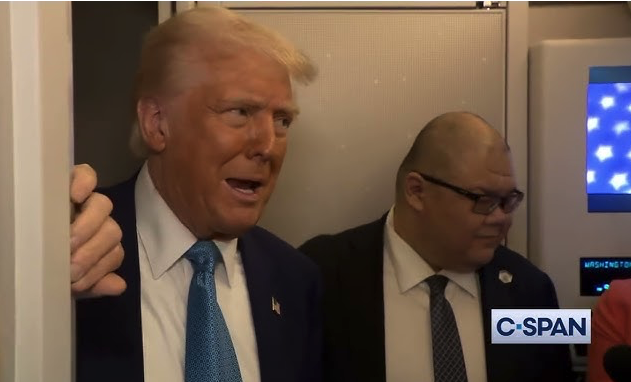Fourteen states filed a lawsuit on Thursday against Elon Musk, the Department of Government Efficiency (DOGE), and President Donald Trump, alleging that Musk’s broad authority over government restructuring and spending cuts is unconstitutional. The coalition, led by New Mexico, argues that Musk’s role as head of DOGE violates the Appointments Clause of the U.S. Constitution since the Senate never confirmed him.
The lawsuit contends that Musk wields unchecked power to eliminate government departments, slash agency budgets, and reassign personnel without congressional oversight. In a legal filing, the states wrote, “Mr. Musk’s seemingly limitless and unchecked power to strip the government of its workforce and eliminate entire departments with the stroke of a pen or click of a mouse would have been shocking to those who won this country’s independence.”
The plaintiffs—Arizona, Michigan, California, Connecticut, Hawaii, Maryland, Massachusetts, Minnesota, Nevada, Oregon, Rhode Island, Vermont, Washington, and New Mexico—are seeking a court order to restrict Musk and DOGE from altering the disbursement of federal funds, modifying government contracts, or changing personnel structures. They are also asking that Musk and his team be barred from accessing or modifying government data systems.
🚨 14 State Attorneys General have filed a lawsuit which claims Pres. Trump has violated the Appointments Clause by creating a federal department without Congress’s approval and granting Musk broad powers without Senate consent.
(NM, AZ, MI, CA, CT, HI, MD, MA, MN, NV, OR, RI,… pic.twitter.com/dbVGvsMFtK
— Karly Kingsley (@karlykingsley) February 14, 2025
New Mexico Attorney General Raúl Torrez, speaking on a press call, said, “Our constitutional order was founded in part to guard against the accumulation of state power in the hands of a single individual, and while that construction was first focused on the abuse of power of an 18th-century monarch, it is no less dangerous in the hands of a 21st-century tech tycoon.”
The lawsuit follows a separate legal challenge filed earlier in the day by current and former employees of the United States Agency for International Development (USAID), which has been a primary focus of DOGE’s cost-cutting measures. The Trump administration has made clear its intent to scale back foreign aid operations, arguing that taxpayer dollars should not be used to fund what they describe as wasteful or ineffective overseas programs. Critics, however, say the move will harm diplomatic relations and diminish America’s global influence.
During a press briefing in the Oval Office, Trump was asked whether the DOGE team’s presence at the Internal Revenue Service (IRS) could signal plans to dismantle the agency. Trump did not confirm or deny the possibility but stated, “The IRS will be looked at like everybody else. Just about everybody is going to be looked at.” He went on to praise DOGE’s efficiency, calling them “a force of super-geniuses” and remarking that their investigations had already put government officials on the defensive.
Trump’s comments fueled speculation about potential tax reforms, particularly as Commerce Secretary nominee Howard Lutnick was overheard mentioning “ERS,” a rumored alternative to the IRS that would rely on tariffs and international revenue rather than domestic income taxes. Trump has previously hinted at restructuring federal taxation but has not provided details on a potential replacement system.
The lawsuit against Musk comes as New Mexico takes an increasingly active role in challenging executive actions. In 2023, Governor Michelle Lujan Grisham attempted to impose a public health order suspending open and concealed carry rights in parts of the state, citing violent crime. A federal judge quickly blocked the order, ruling it unconstitutional under the Second Amendment. The legal challenge drew bipartisan criticism, including from Attorney General Torrez, who suggested that legislative solutions would be more effective than executive mandates.
With the current lawsuit, New Mexico and its coalition partners are again raising questions about executive power, this time focusing on the consolidation of authority within DOGE. The case is expected to be closely watched as it could set legal precedents regarding the limits of presidential authority and the role of private citizens in government restructuring. Neither the White House nor DOGE has issued an official statement in response to the lawsuit.




